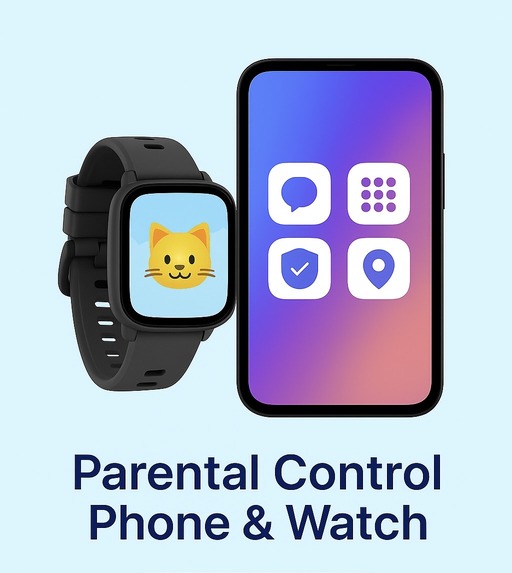
✔ Detects cyberbullying, predators, & threats
✔ Tracks real-time GPS location
✔ Sends instant alerts for risky activity
✔ Blocks explicit, violent, or unsafe websites
✔ Sets screen-time limits and bedtime schedules
✔ Lets parents approve contacts & apps
✔ Keeps data private & secure
📊 Are Smartphones Really Bad for Kids? New Study Challenges Old Beliefs
What Parents Usually Hear
Parents are constantly warned about the dangers of kids and technology. From screen addiction to shortened attention spans, the message is often negative. But a surprising new study from the University of South Florida (USF) suggests there may be unexpected benefits of smartphones for children — if they’re used wisely.
What the Survey Revealed
The Life in Media Survey tracked more than 1,500 children ages 11 to 13. The results challenge the idea that phones always harm kids:
- ✅ Children with phones scored higher in emotional wellbeing. They were less likely to report depression and more likely to feel good about themselves.
- 👫 Phones supported in-person friendships. Kids with devices reported more face-to-face time with peers.
- 📉 Posting publicly online was the real issue. Children who regularly posted on social platforms were twice as likely to experience anxiety, depression, and sleep difficulties.
- 🚫 Cyberbullying left long-term scars. Even being called names online was linked to anger, sadness, and dependence on devices.
Why This Study Feels Different
Unlike past reports that focused only on teens, this research looked at younger preteens and early adolescents. It also went beyond gaming and social apps, examining habits like binge-watching, podcast listening, and music streaming.
The big takeaway? Smartphone effects are complex. The device itself isn’t automatically harmful — it’s the habits built around it that matter most.
Practical Tips for Families
Parents don’t need to fear technology, but they do need to guide it. The study highlights simple ways to protect kids while letting them benefit from having a phone:
- Introduce digital wellness routines for kids. Examples: no phones in bed, regular screen breaks, and family tech-free nights.
- Pick a starter device with essential features only. Many families are choosing simplified mobile phones for children that allow calls and texts, but limit apps.
- Create household technology rules. Establish clear guidelines about when and how phones can be used — like at school, during meals, or while doing homework.
- Talk openly about cyberbullying. Encourage kids to share if they’ve had negative experiences online.
Looking Toward the Future
This project is just the beginning. Over the next 25 years, USF researchers will follow kids into adulthood to answer bigger questions:
- How does constant screen use affect sleep over time?
- What happens to attention spans with years of short-video watching?
- Does early online interaction shape social skills in adulthood?
The answers could reshape how parents, teachers, and health professionals understand children’s relationship with technology.
Smartphones aren’t simply “good” or “bad.” The real difference lies in how kids use them — and how parents guide that use. With the right boundaries and thoughtful choices, families can transform phones from a risk into a resource.